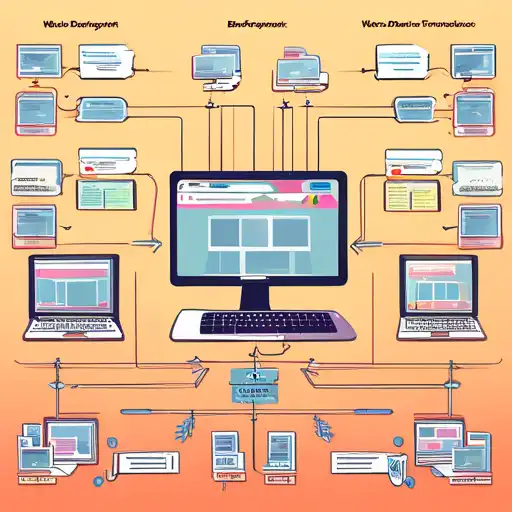Introduction to Web Development Frameworks
In the ever-evolving world of web development, choosing the right framework can be a daunting task. With a plethora of options available, developers often find themselves at a crossroads, trying to determine which framework best suits their project needs. This guide aims to simplify that decision-making process by highlighting key considerations and comparing popular frameworks.
Why Use a Web Development Framework?
Web development frameworks provide a structured foundation for building web applications. They offer reusable components, streamline the development process, and enforce best practices, ultimately saving time and reducing errors. Whether you're working on a small personal project or a large-scale enterprise application, selecting the appropriate framework is crucial for success.
Key Factors to Consider
When evaluating web development frameworks, consider the following factors:
- Project Requirements: The nature and scope of your project will significantly influence your choice. For instance, a single-page application (SPA) might benefit from a frontend framework like React or Vue.js.
- Learning Curve: Some frameworks have a steeper learning curve than others. If you're working under tight deadlines, you might prefer a framework that your team is already familiar with.
- Community and Support: A strong community and extensive documentation can be invaluable resources, especially when encountering challenges during development.
- Performance: Consider the performance implications of the framework, especially for applications that require high speed and efficiency.
Popular Web Development Frameworks
Here's a brief overview of some of the most popular web development frameworks today:
- React: A JavaScript library for building user interfaces, React is known for its virtual DOM feature, which optimizes rendering and improves app performance.
- Angular: Developed by Google, Angular is a comprehensive framework that offers a wide range of features out of the box, making it ideal for complex applications.
- Vue.js: Vue.js is celebrated for its simplicity and flexibility, allowing developers to adopt as much or as little of the framework as they need.
- Django: A high-level Python web framework that encourages rapid development and clean, pragmatic design.
Making the Right Choice
Ultimately, the best web development framework depends on your specific needs, preferences, and project goals. Experimenting with different frameworks through small projects can provide valuable insights and help you make an informed decision. Remember, the goal is not just to choose the most popular framework, but the one that aligns with your project's requirements and your team's expertise.
For more insights into web development, check out our articles on emerging web development trends and optimizing web performance.
Conclusion
Choosing the right web development framework is a critical step in the development process. By carefully considering your project's needs and evaluating the strengths and weaknesses of each framework, you can select the tool that will best help you achieve your goals. Happy coding!
